Last Updated on July 30, 2021
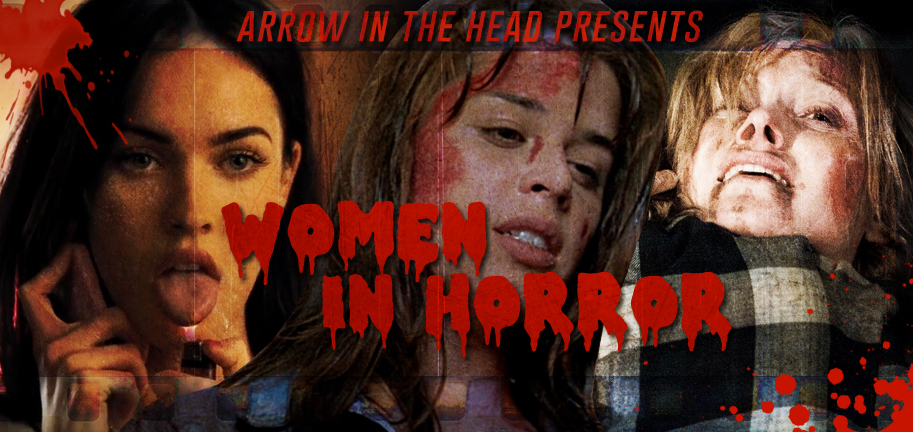
One month a year isn't enough to recognize the talented women that make up the horror genre, so Arrow In The Head is starting a column dedicated to celebrating the female filmmakers, screenwriters, cinematographers, and stars that fill such irreplacable roles within the cinematic realm. May their paths inspire others, and may we never forget their important contributions to the film world.

FILMMAKER LYNNE RAMSAY
This entry features the impeccable director Lynne Ramsay, known for her films RATCATCHER, WE NEED TO TALK ABOUT KEVIN, and YOU WERE NEVER REALLY HERE. In honor of this spectacular human and the unforgivable way the Oscars have shunned her, I'd like to share one of my favorite Ramsay quotes for this piece. Please enjoy, and if you haven't seen her work yet, please seek out as many of her films as quickly as possible.
"I’ve got a reputation for being difficult,” she says, “and yet with my crew and my cast, I’m super-collaborative and we get on really well, and they like working with me. So to me that always feels like bullshit. You’re doing a tough job, where you’re the captain of the ship, and there’s always tough decisions to make, and sometimes you’ve just got to go, ‘That’s not right for this’. You’ve got to stick up for what you believe in. If you don’t do that, you’re doing a disservice to the audience, because you’re making something really diluted. And if you do that when you’re a guy, you’re seen as artistic – “difficulty” is seen as a sign of genius. But it’s not the same for women. It’s a tough industry, and if you’re a woman it’s harder, whether you like it or not." -Lynne Ramsay
 BACKGROUND: Born in Glasgow on December 5th, 1969, Scottish director Lynne Ramsay began her studies at Napier College, Edinburgh, then went on to specialize in cinematography and direction at the National Film and Television School in Beaconsfield, England. From there, she went on to win the 1996 Cannes Prix de Jury for her graduation short film “Small Deaths”, a series of three vignettes of children grappling with the consequences of their actions. Her second short film “Kill the Day”, a story about a heroin addict recently released from jail, won the Clermont Ferrand Prix du Jury in 1996. Her third short “Gasman” about a brother and sister who go to a Christmas party with their father earned her another Cannes Prix du Jury and a Scottish BAFTA for Best Short Film.
BACKGROUND: Born in Glasgow on December 5th, 1969, Scottish director Lynne Ramsay began her studies at Napier College, Edinburgh, then went on to specialize in cinematography and direction at the National Film and Television School in Beaconsfield, England. From there, she went on to win the 1996 Cannes Prix de Jury for her graduation short film “Small Deaths”, a series of three vignettes of children grappling with the consequences of their actions. Her second short film “Kill the Day”, a story about a heroin addict recently released from jail, won the Clermont Ferrand Prix du Jury in 1996. Her third short “Gasman” about a brother and sister who go to a Christmas party with their father earned her another Cannes Prix du Jury and a Scottish BAFTA for Best Short Film.
Things weren’t always so easy for the writer/director, however. Despite going on to win the Award of The Youth at the 2002 Cannes Film Festival for her first feature length film MORVERN CALLAR in 2002, she experienced significant trouble working on larger production films that were offered up to her as a result of her initial success. Ramsay was supposed to direct the adaptation of Alice Sebold’s THE LOVELY BONES in 2004, but constant interference with producers who wanted an extremely faithful rendering of the material left her exhausted and frustrated. Ultimately, Ramsay left the project when it became clear that she wouldn’t be able to tell the story she wanted. Likewise, in 2013, Ramsay walked away from the chance to direct JANE GOT A GUN, the Natalie Portman led western thriller about the farmer wife of an outlaw husband. Both instances were relayed to the public as ‘creative differences’, and arguably, both films suffered low box office scores as a result of Ramsay’s absence.
Shying away from big budget productions, Ramsay found herself working with smaller independent films, which allowed the auteur more freedom, thus creating more fulfilling work. Starring Tilda Swinton and John C. Reilly, Ramsay’s 2011 film WE NEED TO TALK ABOUT KEVIN about a tormented mother and her troubled son gave Ramsay a BAFTA nomination for Best Director at the British Independent Film Awards as well as a win for Best Film Screenplay at the Writer’s Guild of Great Britain. Her 2017 film YOU WERE NEVER REALLY HERE starring Joaquin Phoenix received great acclaim at the 70th Cannes Film Festival, winning Ramsay the Best Screenplay award and a seven minute standing ovation from what is arguably the world’s toughest audience.
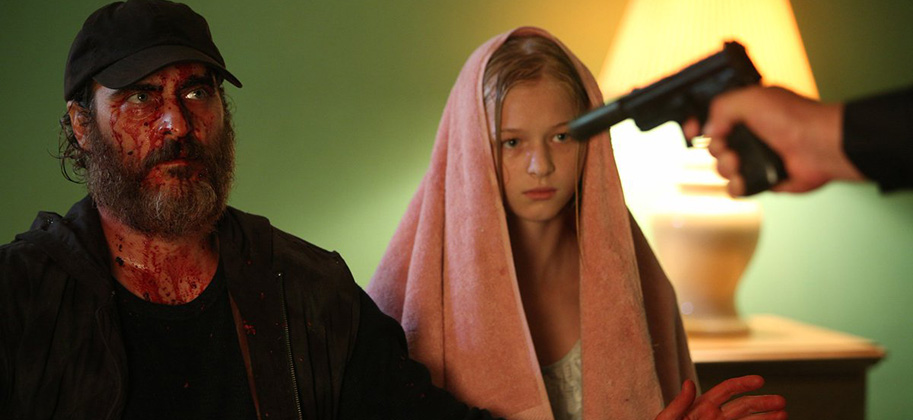 BEST WORK: Ramsay delivered her best work yet early last year with YOU WERE NEVER REALLY HERE, a film about an ex veteran named Joe (Joaquin Phoenix) turned hired gun who is called upon by a prestigious politician to retrieve his daughter from an elusive sex circle deep in the heart of the city’s darkest corners. As the story unfolds out, it becomes clear that there's some foul play at hand, and in the end, this rescue mission wickedly morphs into a revenge scenario wherein Joe will stop at nothing to destroy everyone who dare tread into his bloodthirsty path.
BEST WORK: Ramsay delivered her best work yet early last year with YOU WERE NEVER REALLY HERE, a film about an ex veteran named Joe (Joaquin Phoenix) turned hired gun who is called upon by a prestigious politician to retrieve his daughter from an elusive sex circle deep in the heart of the city’s darkest corners. As the story unfolds out, it becomes clear that there's some foul play at hand, and in the end, this rescue mission wickedly morphs into a revenge scenario wherein Joe will stop at nothing to destroy everyone who dare tread into his bloodthirsty path.
Based on the book by Jonathan Ames and penned for the screen by Ramsay herself, the script features some truly lean and mean screenwriting, making for an extremely uncompromising and potent character study that plays like a modern day TAXI DRIVER if it were stylized more in the vein of Park Chan-wook’s OLDBOY. The film occasionally flashes back to Joe’s military days, but, never one to conform to the norm, Ramsay presents the memories in a unique type of way that highlights the post traumatic stress disorder nature of the character. Because of this special perspective of the past, Joe’s inner demons are put on full display while the picture also sheds light on the man’s wounds and why he hopes for a better, less damaged future for the little girl he’s trying to save. It’s a beautiful film, albeit extremely violent, but even the violence is shown in a special way, focusing more on the aftermath of the lurid actions rather than romanticizing his crimes, thereby forcing the viewer to focus on the consequences, a constant theme in Ramsay’s work that has never been better shot in her career.
 CAREER DEFINING MOMENT: Ramsay really came on the map with her 2011 film WE NEED TO TALK ABOUT KEVIN. Told in her famous non-sequential manner, the story details the account of a school massacre, starting at the beginning, with Eva (Tilda Swinton), a woman who never wanted to birth a child, but wound up falling into the trap despite her best intentions. The result is an estranged relationship between mother and son that evolves into one cry for help after another, all leading up to a cataclysmic event that shatters the lives of everyone around them.
CAREER DEFINING MOMENT: Ramsay really came on the map with her 2011 film WE NEED TO TALK ABOUT KEVIN. Told in her famous non-sequential manner, the story details the account of a school massacre, starting at the beginning, with Eva (Tilda Swinton), a woman who never wanted to birth a child, but wound up falling into the trap despite her best intentions. The result is an estranged relationship between mother and son that evolves into one cry for help after another, all leading up to a cataclysmic event that shatters the lives of everyone around them.
Played by Ezra Miller (as well as Jasper Newell in the younger moments) Eva's son Kevin is clearly disturbed from the beginning, but whether or not it is a result of nature or nurture is a question that Ramsay lets the audience debate. Would this terrible event have occurred if Kevin had been shown more maternal love by his parent, or was he simply a bad seed, destined to be a troublemaker of the highest degree from the start? A still photographer before she was a director, Ramsay thinks in images and sounds, quieting down the dialogue and letting extreme close-ups, non-linear storytelling and razor sharp sound design speak where words cannot. This gorgeous film is just as upsetting as it is comely, and is a terrific display of Ramsay’s unabashed willingness to play with the form, re-cut scenes to fit the score, and force audiences to witness the impact of grief and loss, and of course, above all, consequences. Ramsay is one of our very best directors working today, and this is just one of the cases for that fact.
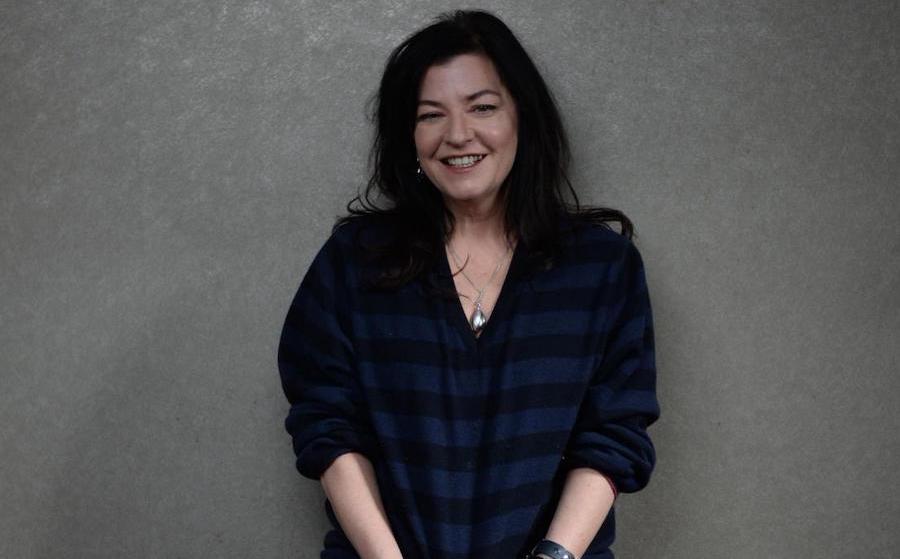
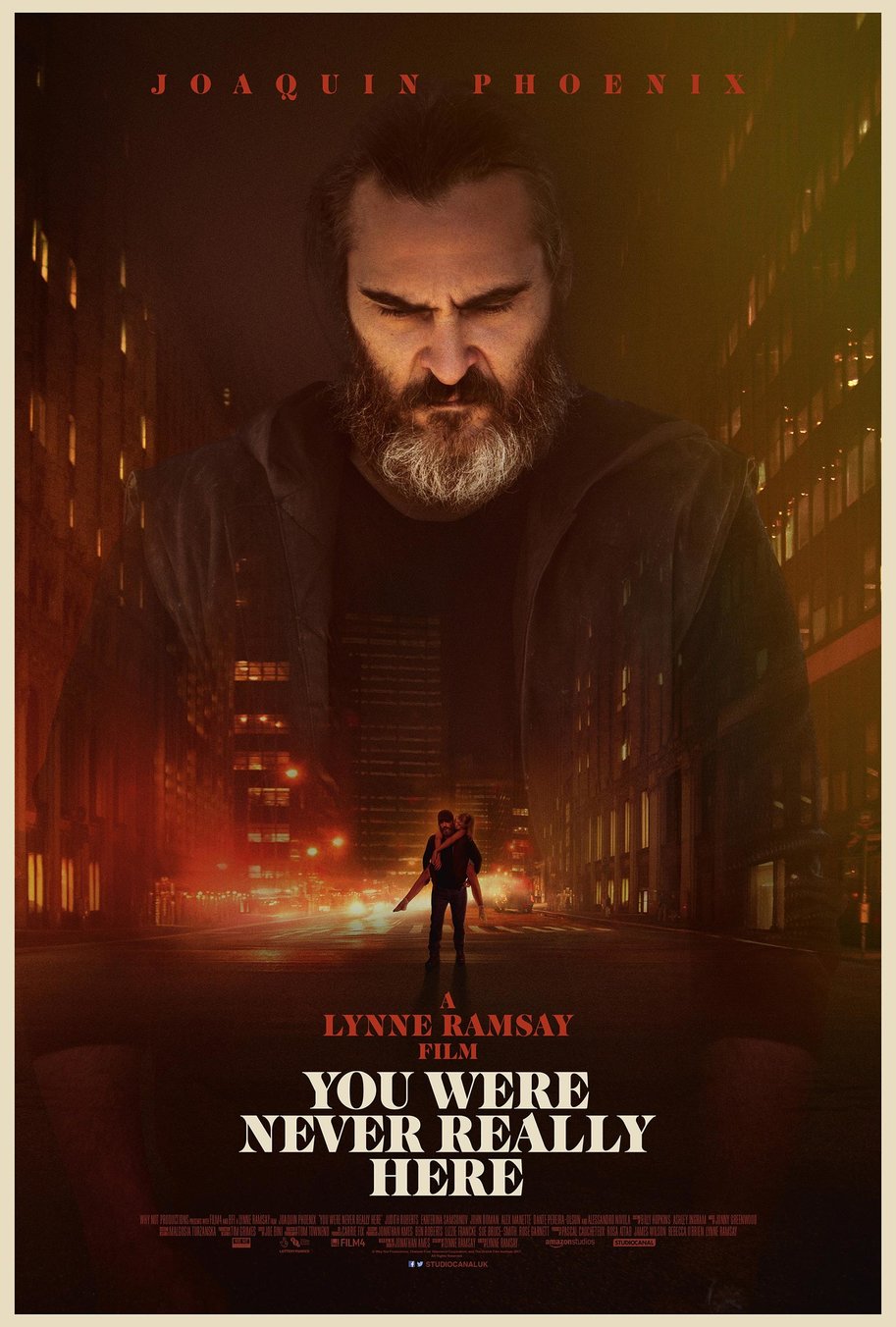





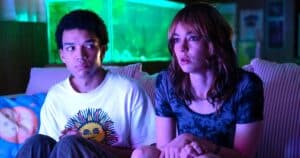
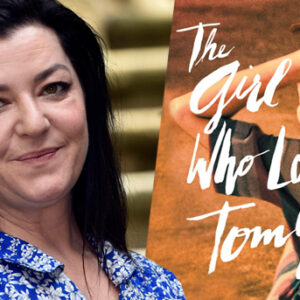


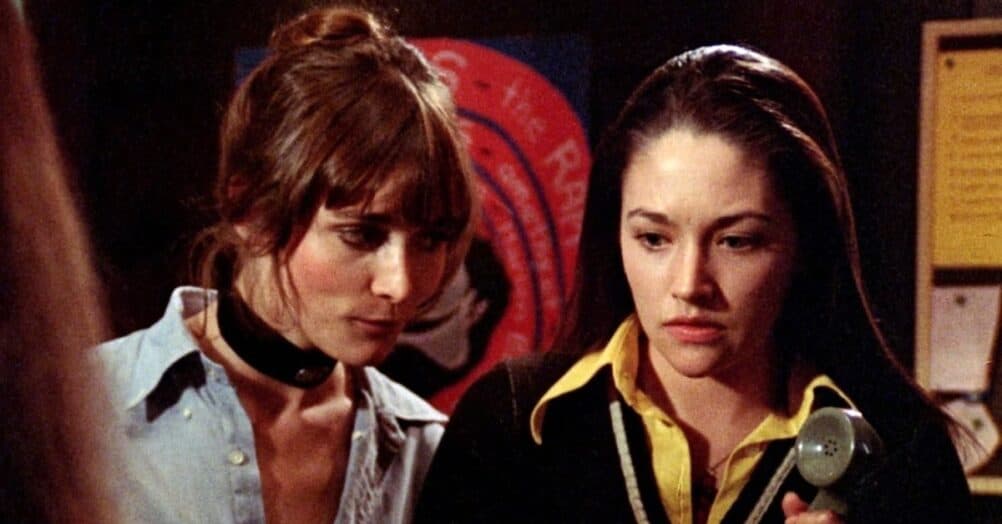



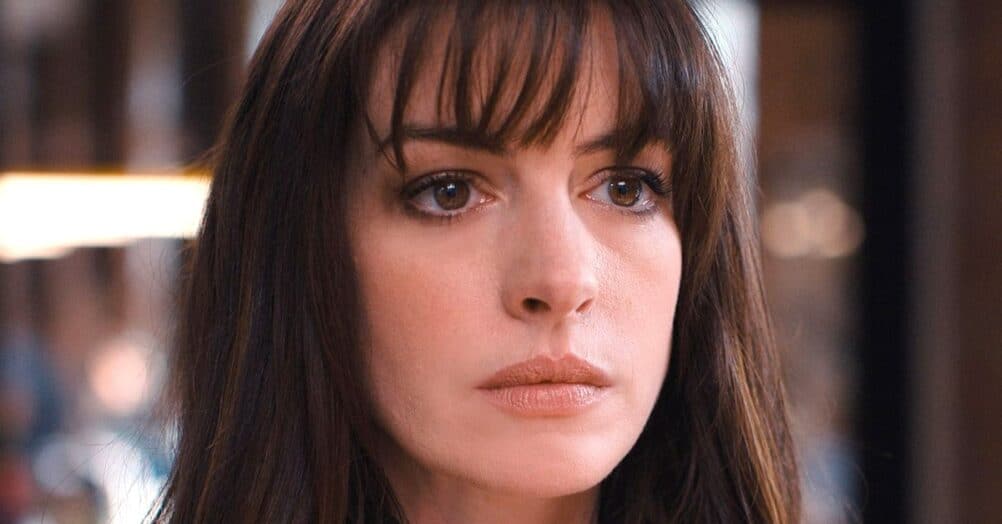

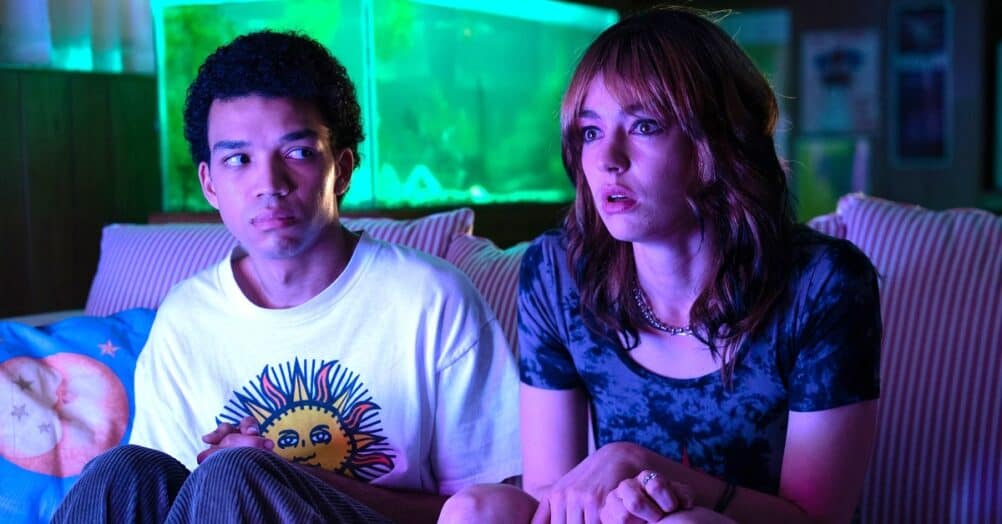


Follow the JOBLO MOVIE NETWORK
Follow us on YOUTUBE
Follow ARROW IN THE HEAD
Follow AITH on YOUTUBE